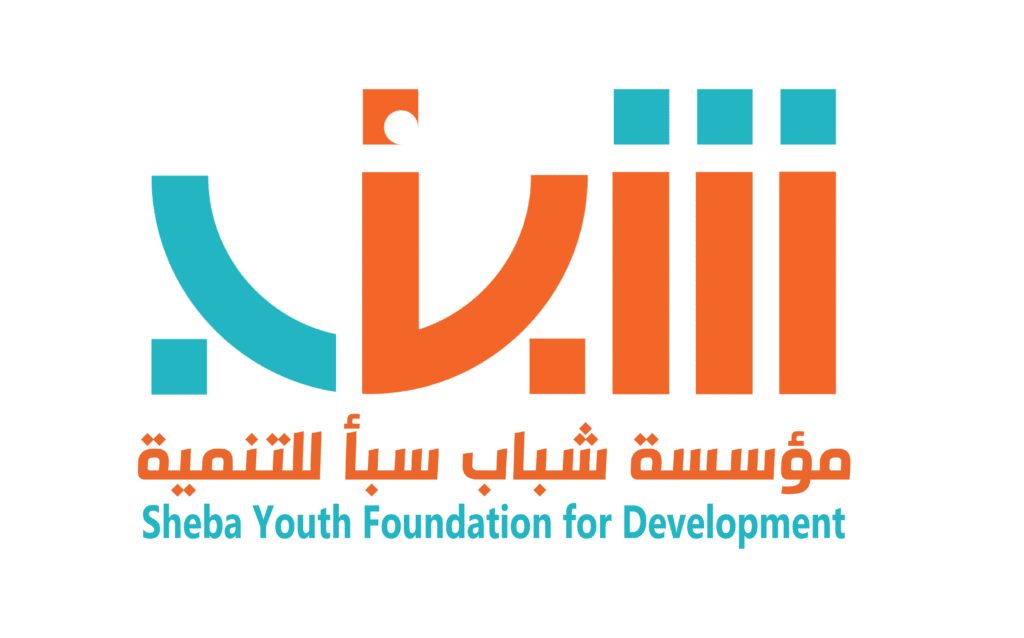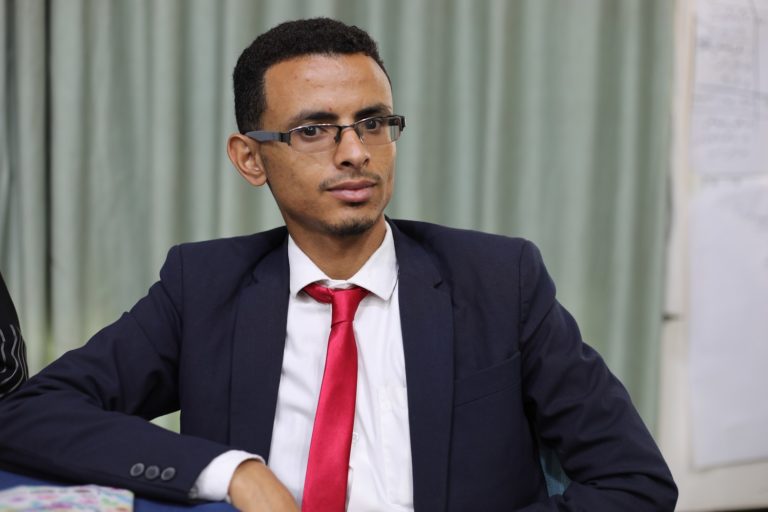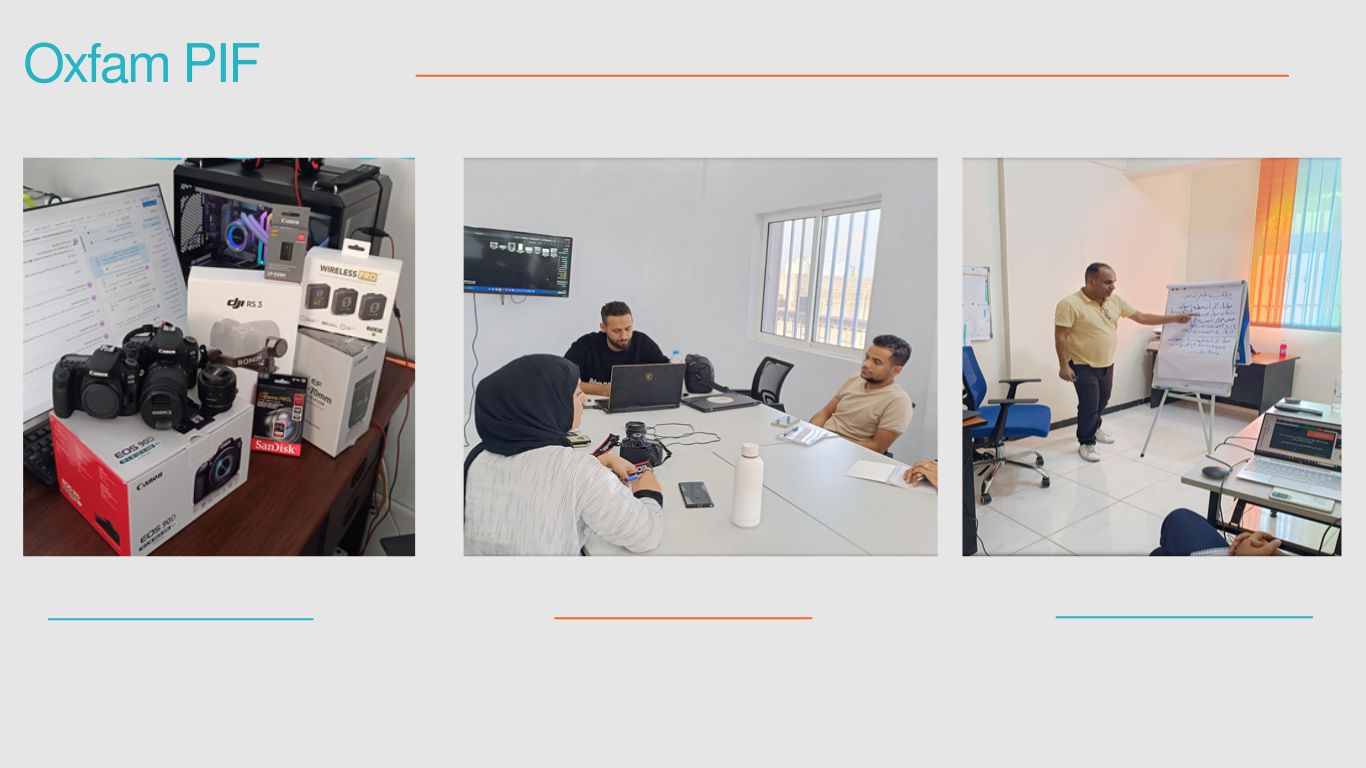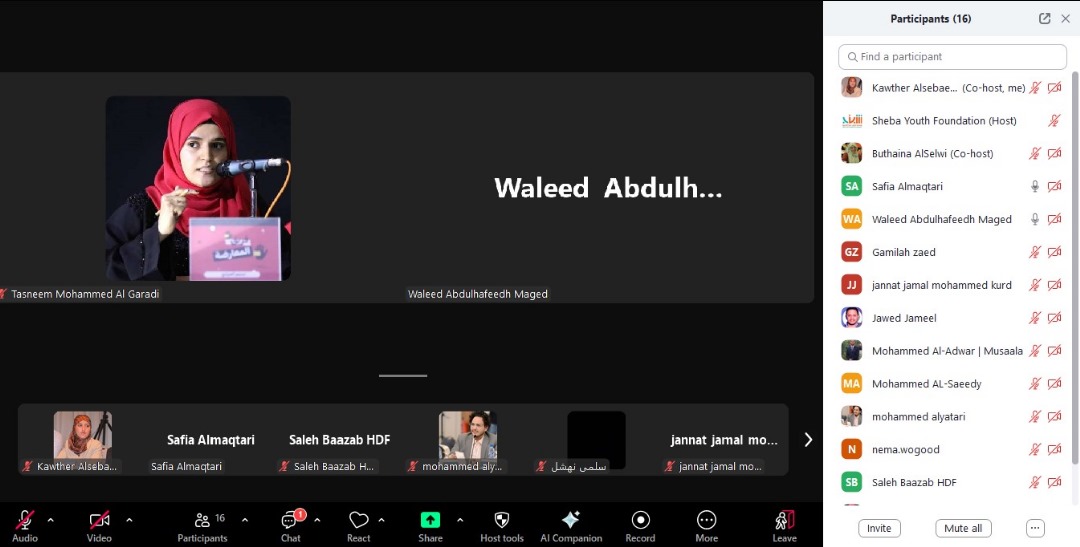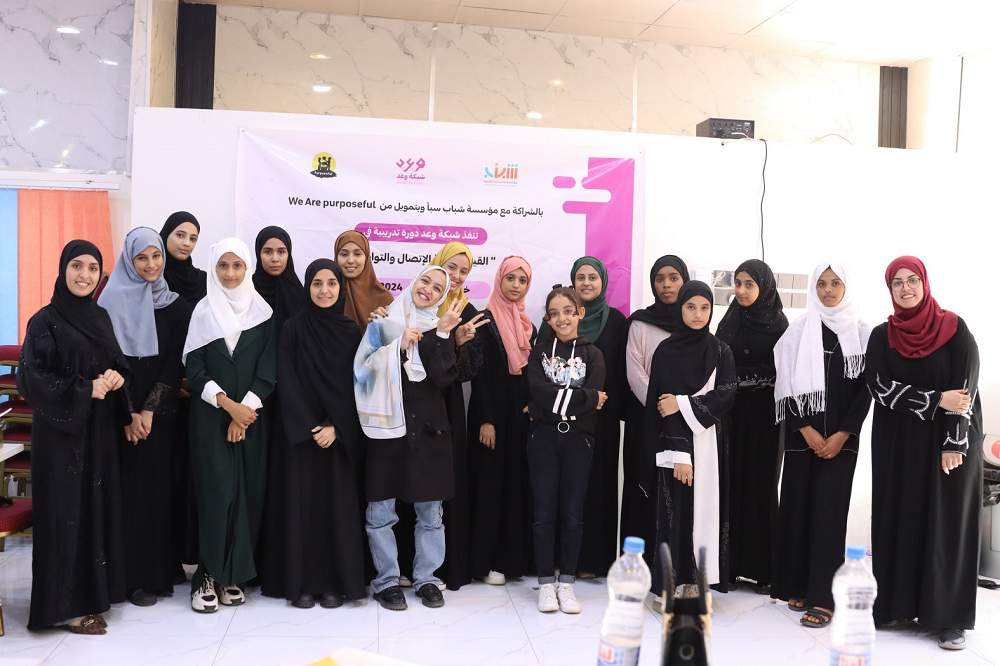Story Summary
Activist Ahmed Al-Ameri, aged 26, who used to work as a field surveyor for Al-Nahdha Foundation, and he is now a member of the community council formed by Sanad Project in Al-Mudhaffar District, Taiz Governorate, southwest of Yemen, explains how he reflected what he had learned in the conflict analysis training he had received in Sanad Project, funded by Jusoor Program, which is implemented by Sheba Youth Foundation. That is, Ahmed succeeded in stopping a conflict between two families over collecting rainwater from the roof of their building. After the conflict was stopped, he contributed to reach a terminal solution to their problem, after they almost went to the police station. Ahmed emphasizes that if the conflict had occurred before he had received the course, he would not have dealt with it the way he did after the course, stressing the great impact the program had on his way of thinking.
“The first stage of Sanad Project was a ten-day training, during which we have got acquainted with many concepts related to conflicts, their management and how to deal with them. As a social activist, I have broadened my horizons and learnt new skills, which was a really excellent addition to me. Moreover, I have learnt new concepts, sech as project management, from writing the proposal to preparing the budget, and this is a gain I am happy with, since I work in this field and it will positively reflect on my work in the volunteer and development field and in achieving peace that I seek in my community,” says Ahmed.
Story Details
“Perhaps if we had come across this problem with the narrow view of conflict and its analysis, my friend would have taken one side.” By this sentence, Ahmed Al-Ameri, aged 26, summed up his story with Sanad Project, implemented by Sheba Youth Foundation in Taiz Governorate, southwest of Yemen.
Ahmed tells us how the course of Conflict Concepts and Its Analysis helped him to contribute to resolving a conflict between two families in a neighborhood in Al-Mudhaffar District, in the center of Taiz.
He says, “While I was visiting my friend, in Sina area, after returning from the training, I came across a dispute between two families in the same building where my friend lives.”
“My friend has a four-floor house with apartments rented to several people. Some of those apartments are resided by the sons of the landlord. And due to the rise in water prices, people race to collect rainwater from the rooftops, and from here the conflict issue began,” he explains.
Ahmed continues, “One of the families (Q.S.) wanted to collect rainwater to their water tank when another family wanted the same thing, which was the family of one of the landlords. The landlord’s family put a dirty blanket over the tank of (Q.S) family in order to wash it with rainwater, and then we heard the shouts of the two families, after the (Q.S) family dropped the blanket onto the ground, preventing the dirty water from falling into their tank.”
Ahmed explains the details of the conflict, saying, “There was a fight between the women and children of the two families, and my friend and I intervened with a solution after we stopped the fight.”
Ahmed and his friend suggested a solution to the problem, as they prevented (Q.S.) family from collecting water and prevented the other from placing the blanket over the tank. Then they convinced the two families to transfer the problem to their men so as to find a thorough solution to the dispute, collecting rainwater from the rooftop for all tenants.
Ahmed adds, “After we listened to both parties and the two families agreed to come down from the roof so that the problem would not worsen, and after 15 minutes of calm, all of a sudden, a man from the other family showed up and nervously insulted (Q.S.) family.” “This was the result of listening to just one of the parties to the problem. Then we intervened again and calmed the man and explained to him what happened. But, because of his attacking them, (Q.S.) family transferred the case to the police station, where the argument was against the attacking man,” he explains.
Describing the way he reacted to the conflict when in the police station, Ahmed says, “We waited until the next day for a relative of (Q.S.) family to come so we could sit with him as mediators, and we explained the problem to him in detail, since we were eyewitnesses to everything happened. After a while, my friend and I were finally able to convince the relative with a solution to the problem without the help of the police. We suggested that the roof gate should be kept closed to all the tenants as well as the landlords. So, we locked the gate, leaving the key with one of the landlords who was not involved in the problem, provided that it is not to be opened but when necessary then closed.”
“Perhaps if we had come across the same problem before removing the narrow view of the conflict concepts and its analysis, my friend would have taken one side, especially since he is a relative of one of the conflicting families. However, what I had learnt in the project helped me remove my friend’s narrow view, and we looked at the problem impartially, as well as I told him that we needed to be a party to the solution, not a party to the problem,” Ahmed continues telling his story.
And he concludes, “We faced the conflict with a wide perception. This perception was generated thanks to my experience in the first stage of Sanad Project, which is implemented by Sheba Youth Foundation for Development.”
